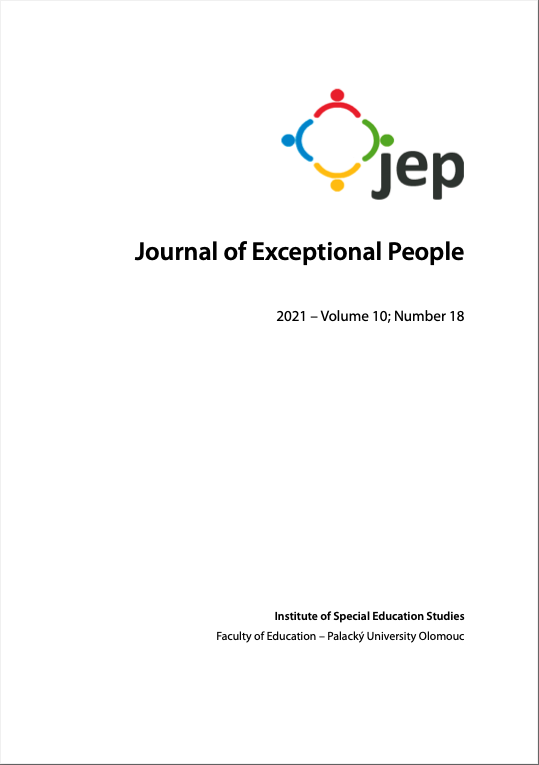Sexuality in persons with intellectual disability and its concept in homes for people with disabilities
Sexuality in persons with intellectual disability and its concept in homes for people with disabilities
Author(s): Zdeňka Kozáková, Tereza ProcházkováSubject(s): Social Sciences, Education, Psychology, Sociology, Inclusive Education / Inclusion
Published by: Univerzita Palackého v Olomouci
Keywords: sexuality; persons with intellectual disability; home for people with disabilities; partnership; parenthood
Summary/Abstract: Partnerships, intimacy and sexuality are an integral part of everybody’s life. The same applies to persons with any type of impairment. For them, fulfilment in the area of partnerships, intimacy and sexuality is a significant factor and indicator of one’s value, quality of life and life satisfaction. The paper focuses on sexuality in persons with intellectual disability who live in social care establishments. In these types of establishments, these individuals are often part of a community governed by internal rules and standards. As a result, these establishments can create a specific environment in order to fulfil relational and sexual needs of their clients. The research involved individuals with intellectual disability and employees of homes for people with disabilities (HPDs). The main objective of the research is to find out how sexuality and its manifestations are perceived by the employees and clients of selected homes for people with disabilities. One of the partial objectives was to find out whether HPDs perform sexuality education, whether they use any professional resources and whether they provide continuing education and development in the area of sexuality both for employees and clients. The authors also analysed the knowledge and experience of clients in the area of sexuality, their perspectives of parenthood, privacy, sexuality education as well as partnerships and their establishment. Another aim was to investigate how the perception of sexuality had developed throughout the existence of the establishments. This information was acquired by means of semi-structured interviews and their subsequent analysis. The administration of the interviews was both personal and electronic in three homes for people with disabilities. The research, the results of which are presented in the text below, has brought new information about how specific homes address their clients’ sexuality, which resources they use and what experience and knowledge their clients have in the area of sexuality. It turned out that it would be desirable to perform a similar research study across the whole network of homes for people with disabilities in order to find out information that would help resolve further questions concerning partnerships, intimacy, sexuality as well as sexuality education of persons with intellectual disability in social care establishments.
Journal: Journal of Exceptional People
- Issue Year: 10/2021
- Issue No: 18
- Page Range: 7-22
- Page Count: 16
- Language: English

